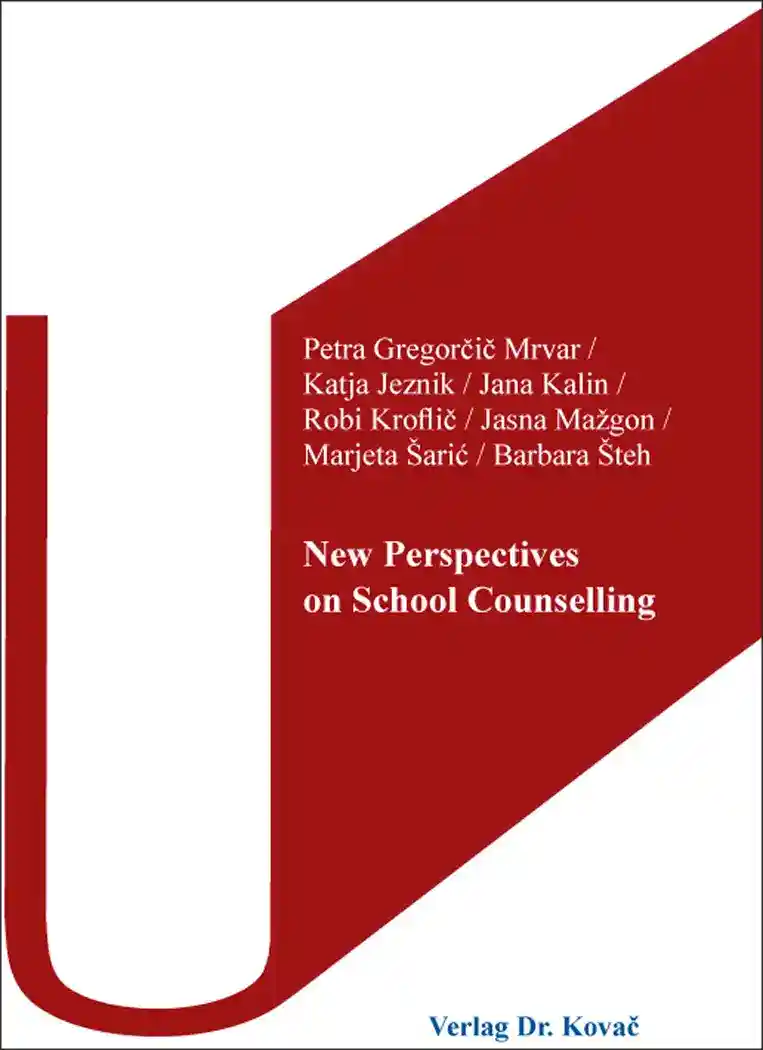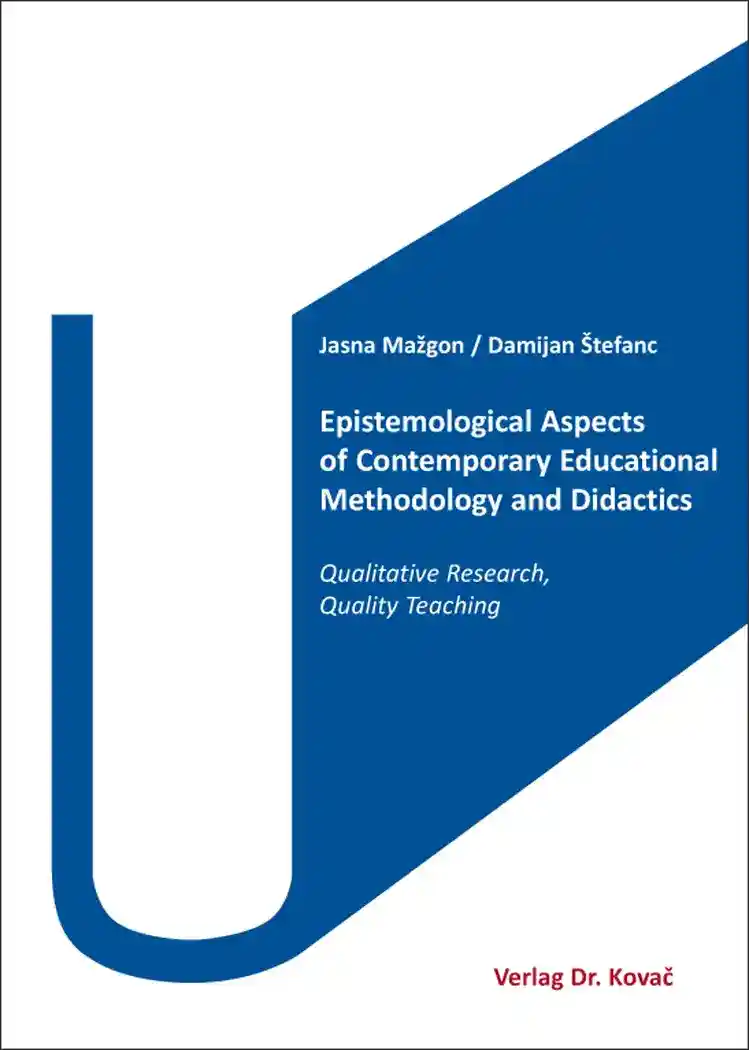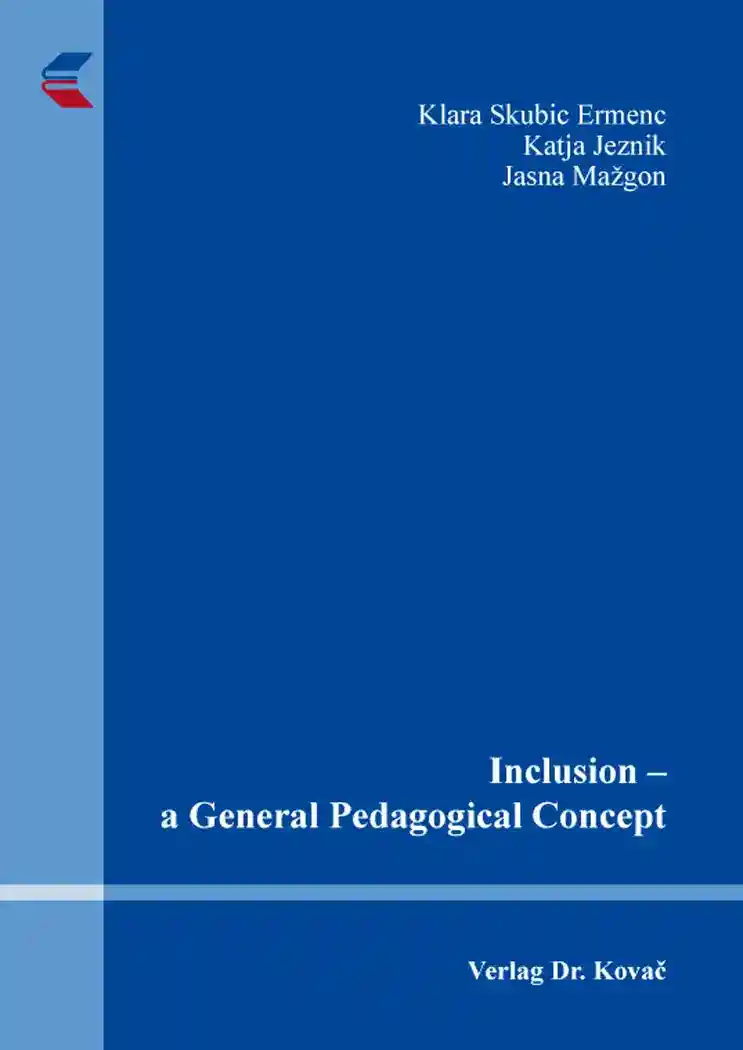Jasna Mažgon / Damijan ŠtefancEpistemological Aspects of Contemporary Educational Methodology and Didactics
Qualitative Research, Quality Teaching
Didaktik in Forschung und Praxis, Band 71
Hamburg 2014, 206 Seiten
ISBN 978-3-8300-7376-5 (Print)
ISBN 978-3-339-07376-1 (eBook)
Zum Inhalt
In this book the authors Jasna Mažgon and Damijan Štefanc from University of Ljubljana (Slovenia) are discussing some of the most crucial contemporary issues which emerged in the fields of general didactics and educational methodology. In the centre of their scientific interest is the concept of knowledge.
From the methodological point of view they address the question of how scientific knowledge in the field of education is produced in post-modern society: they are exploring epistemological, ontological and methodological presumptions on which so called paradigmatic relativism is based. One of the most influential research approaches in this context is action research. It is a research that is thought out and carried out by the „insiders“, those who are engaged and dedicated to a situation, and not „outsiders“, the observers. A line between the researchers and the researched, which is presumed by the theoreticians as observers, is blurred, which also leads to the questions regarding the quality criteria as an important standard of the empirical research: how to evaluate the results of qualitative researches, bearing in mind that they are resulting from different epistemological, ontological and methodological suppositions And how to assess the validity, reliability and objectivity of the results of the researches, which have been designed as multimethodological, i.e. combined research models?
On the other hand, authors show that the problem of knowledge in post-modern and neo-liberal context is far away from being only methodological. As they demonstrate, in the last few decades we can witness a rise of two significant processes in the field of general education which have direct influence on the understanding of (legitimate) knowledge: On one side, we are facing strong demands to establish tighter connection between general education and labor market. From that perspective not only vocational but also general education is mainly perceived as a service whose intention is primarily to prepare young people to be able to meet the expectations of labor market and demands of contemporary national and global economy. On the other side, the understanding of knowledge becomes notably utilitarian – that is, knowledge is only legitimate when it is the type and amount that attains the highest value on the labor market. As authors claim, this is exactly the point where the concept of competence gains its ideological value: namely, in contemporary educational discourse competences are literally occupying the conceptual place which was previously held by knowledge; the whole idea of so called „competence-based“ education rests on presumption that knowledge is not enough, and therefore, it is stated, we need to move further, towards implementation of competences in curriculum documents and practice. Even more, developing competences is very often perceived as being the opposite of acquiring knowledge – as if gaining knowledge would be some kind of an obstacle on the way to becoming competent.
Schlagworte
AktionsforschungDidaktikKompetenzenLehrerPädagogikQualitative ForschungQualitative ForschungsmethodologieWissenskonzepteIhr Werk im Verlag Dr. Kovač
Weitere Bücher der Autoren
A Historical Overview of Selected Action Research Concepts
Hamburg 2025, ISBN 978-3-339-14344-0 (Print) | ISBN 978-3-339-14345-7 (eBook)
 Petra Gregorčič Mrvar / Katja Jeznik / Jana Kalin / Robi Kroflič / Jasna Mažgon / Marjeta Šarić / Barbara Šteh
Petra Gregorčič Mrvar / Katja Jeznik / Jana Kalin / Robi Kroflič / Jasna Mažgon / Marjeta Šarić / Barbara ŠtehNew Perspectives on School Counselling
Hamburg 2022, ISBN 978-3-339-12902-4 (Print) | ISBN 978-3-339-12903-1 (eBook)
Inclusion – a General Pedagogical Concept
Hamburg 2019, ISBN 978-3-339-11358-0 (Print) | ISBN 978-3-339-11359-7 (eBook)


